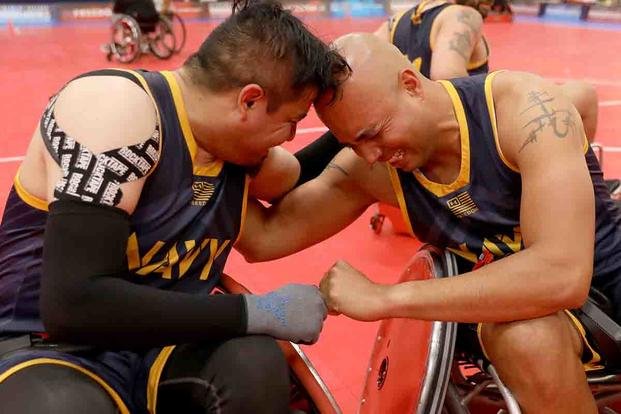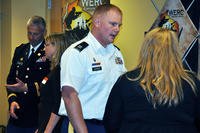Before you write off this article as something unnecessary or silly, remember how important your friendships were in the military. You looked out for each other, bonded during high-stress, high-risk environments and learned to appreciate each other for the similarities and differences you shared.
After the military, finding new friends may not come as naturally to you as they did when you all served a common purpose and mission. In uniform, everyone alongside you volunteered to fight the same fight, to march in the same direction and to risk the same valuable things. In your civilian life, things can look different.
You might find people around you who prioritize different goals, seek different missions and value their relationships and friendships quite differently. Finding a set of friends who'll support you, look out for you and appreciate you is equally important.
Tips for Finding Post-Military Friends
1. Seek out people with common interests. Whether it's professional football, vegan cooking, family activities, environmental causes or working with rescue pets, start by thinking of the activities, causes or hobbies you enjoy. Then, see what organizations or groups exist in your community or even within your employer to put you around others who are passionate about the same issue. It's natural to start to bond with others over shared interests and hobbies.
2. Get comfortable being uncomfortable. It might feel like the most awkward thing ever to approach a stranger, introduce yourself and see whether you might actually want to befriend that person. But do it. The only way you'll find out if this is someone you could enjoy spending time with is to introduce yourself. Avoid introducing yourself with a cheesy pickup line (those are found in abundance by Googling "cheesy pickup lines") and instead start with something authentic and welcoming, like, "Have you been involved with rescue dogs before?" or, "How long have you been a fan of this [sports] team?" to get the conversation started.
3. Don't only talk about your military career. Your default conversations might all revolve around your military career and experiences. And while some of that can be of great interest and appreciation to a civilian, resist the temptation to limit your conversations only to your military past.
4. Find other veterans. Who could you talk to about your military background? Veterans, for sure! When you meet someone who's served, or had a family member serve in the military, enjoy discussing your past experiences and how your transition is going. They will likely have tips and tools to offer you, based on this shared background.
5. Look for ways to help them. It's natural to think of how your friends can help you, but remember, your friends also need and want relationships that will fulfill their lives. As you talk with new people, consider ways you can support, encourage, inform or help advance their goals. Remember, their ambitions might be different from yours, but if your values align and you enjoy the friendship, it's worthwhile to invest in the relationship.
Friendships take many forms from casual to romantic to professional, and finding a new set of friends after an experience as unique and intense as military service is not only daunting but also vital.
The author of "Success After Service: How to Take Control of Your Job Search and Career After Military Duty" (2020) and "Your Next Mission: A personal branding guide for the military-to-civilian transition" (2014), Lida Citroën is a keynote speaker and presenter, executive coach, popular TEDx speaker and instructor of multiple courses on LinkedIn Learning. She regularly presents workshops on personal branding, executive presence, leadership communication and reputation risk management.
A contributing writer for Military.com, Lida is a passionate supporter of the military, volunteering her time to help veterans transition to civilian careers and assist employers who seek to hire military talent. She regularly speaks at conferences, corporate meetings and events focused on military transition.
Want to Know More About Veteran Jobs?
Be sure to get the latest news about post-military careers as well as critical info about veteran jobs and all the benefits of service. Subscribe to Military.com and receive customized updates delivered straight to your inbox.












